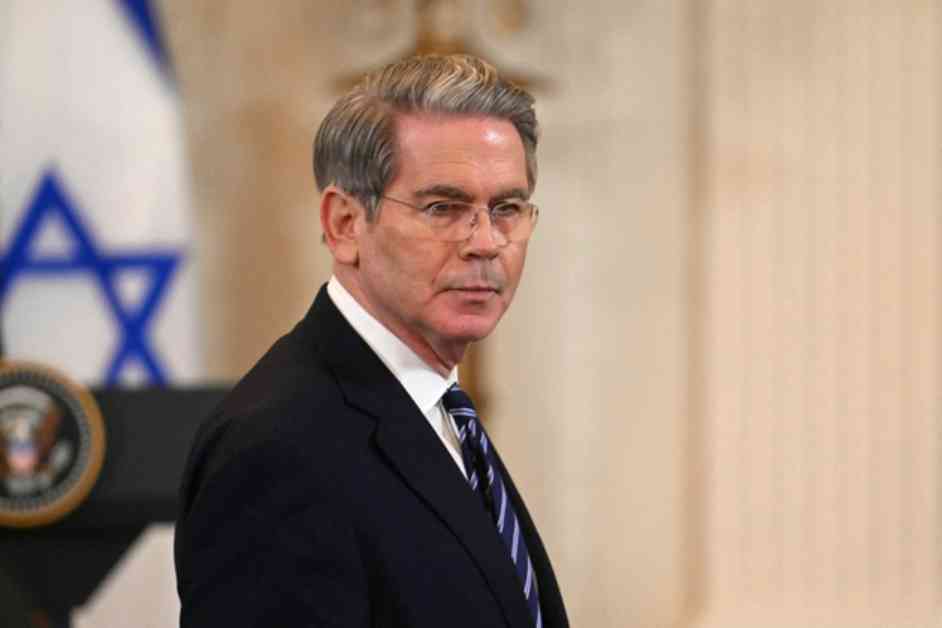US Treasury Secretary Scott Bessent embarked on a historic journey to Kyiv, Ukraine, to convene with President Volodymyr Zelensky, setting the stage for a groundbreaking negotiation aimed at terminating the ongoing Russian invasion. The meeting, a monumental event, marked the first visit by a high-ranking official from the newly appointed administration of US President Donald Trump to the war-ravaged nation. Bessent, a distinguished billionaire hedge fund manager, ventured beyond US borders for the first time since his Senate confirmation on January 28, symbolizing a crucial step in the diplomatic dance unfolding between global powers.
The visit was not merely ceremonial; it carried profound significance as Washington endeavored to strengthen its stance in resolving the conflict with Russia and to secure access to Ukraine’s rare earth minerals. President Trump, an ardent advocate for peace and stability, expressed his unwavering commitment to ending the war by dispatching Secretary Bessent to Ukraine. “This War MUST and WILL END SOON — Too much Death and Destruction,” Trump emphasized, underlining the urgency of the situation and the imperative for swift action.
Trump’s Vision: Mineral Access for Security
The crux of the discussion between Secretary Bessent and President Zelensky revolved around securing US access to Ukraine’s critical minerals, energy resources, and the future of state-owned enterprises. The backdrop of these negotiations was Trump’s proposal to leverage mineral access as a bargaining chip for continued US security support. Trump’s strategic vision echoed his resolute belief in the symbiotic relationship between America’s strength and global peace. The potential exchange of rare earth minerals for security assistance was not merely a transaction but a transformative partnership that held the promise of mutual benefit.
Ukraine’s Untapped Potential: Rare Earth Elements
Ukraine’s untapped potential as a key global supplier of rare earth elements captured the imagination of policymakers and experts alike. The Ukrainian Center for Economic Strategy (CES) shed light on the country’s latent capacity to emerge as a prominent player in the rare earth market. With 17 elements classified as rare earth, Ukraine boasted a rich reserve of minerals, including lithium, titanium, and uranium. However, the road to harnessing these resources was riddled with challenges, particularly as many mineral deposits lay within Russian-occupied territories.
As Secretary Bessent’s visit unfolded against the backdrop of the Munich Security Conference, a confluence of top US officials, including Secretary of State Marco Rubio, Vice President JD Vance, Defense Secretary Pete Hegseth, and US special envoy for Ukraine Keith Kellogg, embarked on parallel diplomatic missions. The rendezvous between Zelensky and these high-profile delegates bore the weight of strategic deliberations as they sought to navigate the complexities of the conflict and pave the way for a potential peace deal with Russia.
In the realm of international diplomacy, where geopolitics intersect with economics and security, every gesture, every word, and every decision carries immense consequence. The unfolding narrative of US-Ukraine relations, punctuated by rare earth minerals and security assurances, underscores the intricate dance of power dynamics on the global stage. As the world watches with bated breath, the fate of nations hangs in the balance, intertwined with the quest for peace, prosperity, and the elusive promise of a better tomorrow.

















